Passport to Self: The Rise of Black Men in Solo Travel and Cultural Reclamation
Conversations with Sheldon Steele II, Luidji Dormeus and Noah Hutchins on identity, intentionality, and why exploring the world alone reshapes how Black men see themselves.
There’s something sacred about leaving behind everything you know to discover who you are.
For a growing number of Black men, solo travel isn’t about vacation—it’s about reclamation.
A passport becomes a permission slip. A one-way flight becomes a mirror. And every unfamiliar street becomes a chance to redefine manhood, freedom, and identity.
For too long, the narrative around Black male mobility has been boxed in by fear, stereotype, and obligation. But now, from Rio to Berlin to Lagos to Paris, a new generation is choosing to write its script: not just to escape but to expand.
This essay is a conversation with three men who’ve done just that.
Sheldon Steele II is a faith-led creative traveling through ministry, performance, and purpose.
Luidji Dormeus is a creator who’s carved out a platform around cultural immersion. He used his time in Germany and Europe to explore what it means to live, not just visit, abroad.
Noah Hutchins is a world traveler, tech sales professional, former Division 1 soccer player, and the founder of Not A Run Club (NARC)—a Brooklyn-based movement community now taking its mission global with intentional activations across cities like Paris and London.
Through their reflections, we explore what it means to travel alone, but never aimlessly.
Because sometimes, the farther you go from home…the closer you get to yourself.
Travel, especially solo travel, holds a different weight for Black men. It becomes more than just a change of scenery—a change of story. You're given rare permission to be when you step outside the structures that have defined you, whether it’s the burden to perform, provide, or protect. To unlearn. To listen. To find out who you are without the noise. In a world that often tells Black men who they should be, travel offers the space to ask, Who am I becoming?
For Sheldon Steele II, that question has shaped his journey.
Faith, Roots, and Purpose: Sheldon Steele II
For Sheldon Steele II, travel isn’t just movement; it’s ministry. From a young age, he dreamed of exploring beyond the limits of his neighborhood, inspired by the bright imaginings of childhood shows like Dragon Tales. That spark became a calling when touring with the Broadway production of Dreamgirls opened the doors to Shanghai and Tokyo, showing him that travel could be more than an escape; it could be a form of alignment.

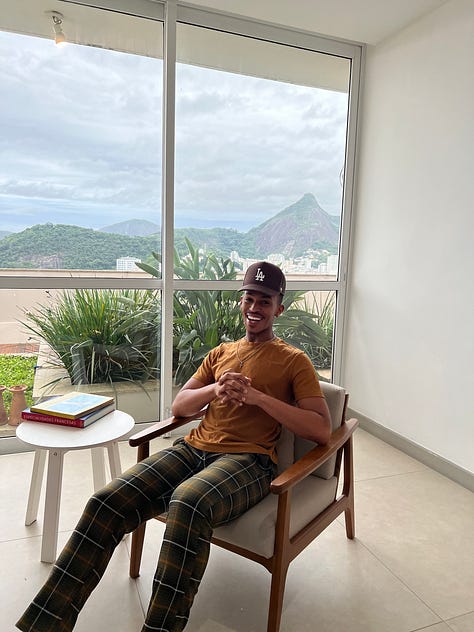
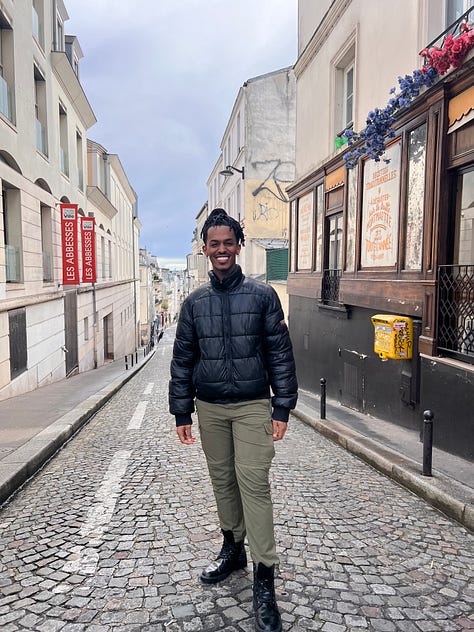

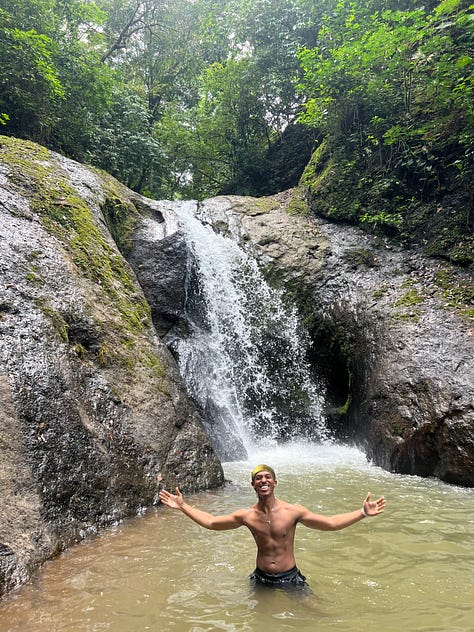

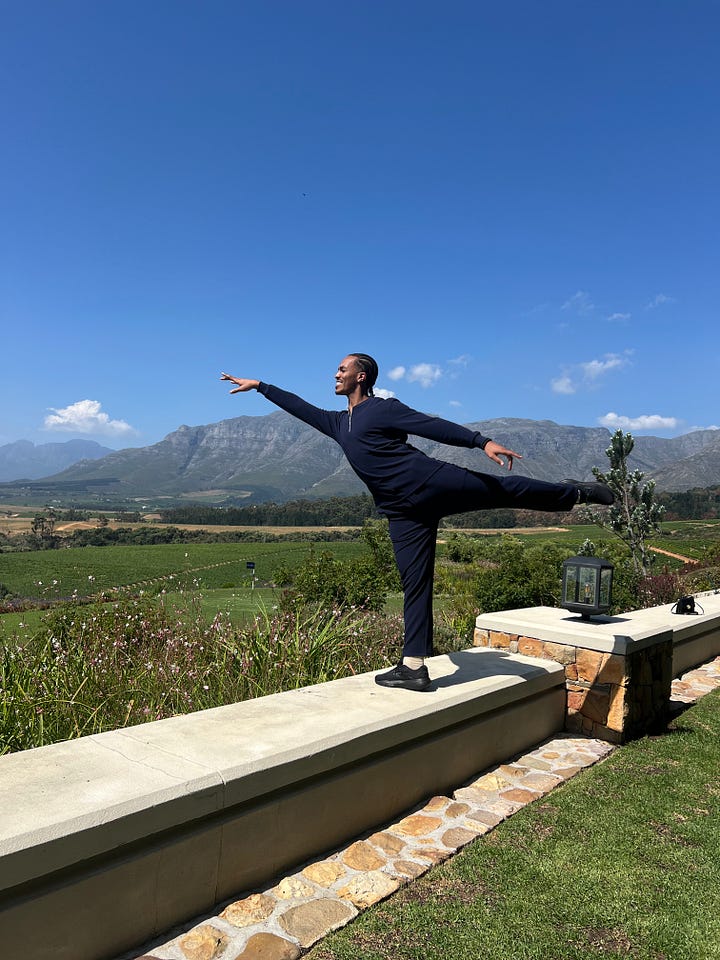

Over the years, he has journeyed through 15 countries, each trip reinforcing the idea that travel is a practice of seeking, not fleeing. The places that have stayed with him most, Rio de Janeiro and Panama City, stand out not only for their beauty but for their deep resonance with his identity. Panama, in particular, held a Caribbean vibrancy that felt almost ancestral, reminding him of his great-grandfather’s migration from Panama to Jamaica during the building of the canal. In that moment, the distance between past and present collapsed into something close to belonging.

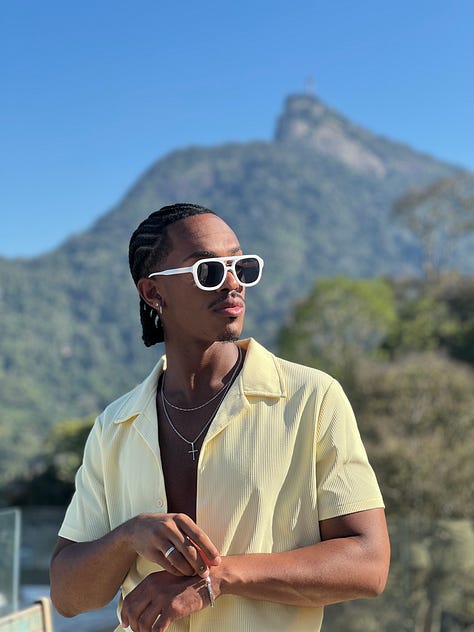
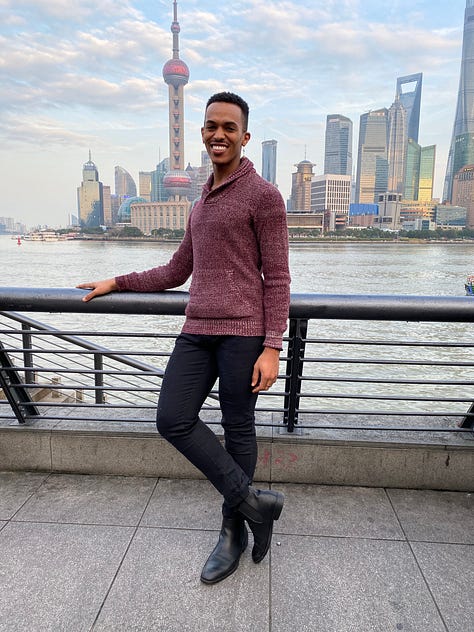
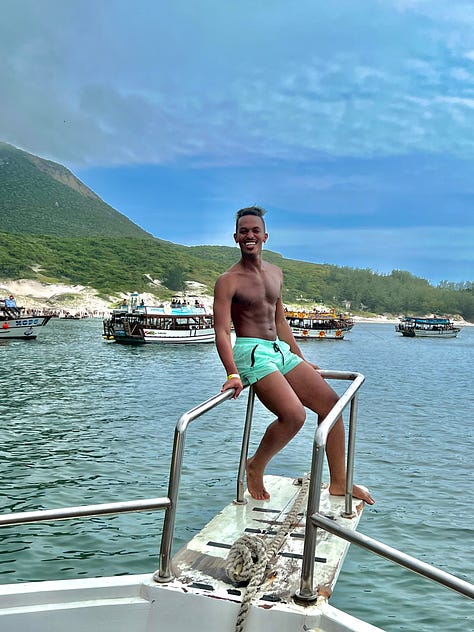

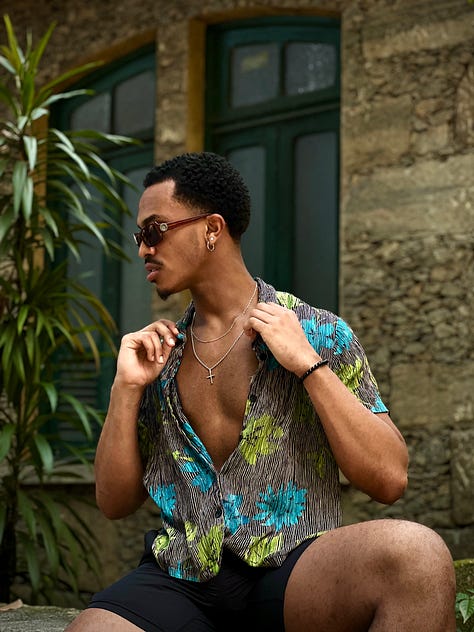
When Sheldon arrives somewhere new, he avoids surface-level sightseeing. He moves through neighborhoods on foot, shops locally, and makes it a point to find the heartbeat of the place, its faith communities, Afro-diasporic spaces, and creative circles. Those small acts of intention, asking a barista what to explore, spending time with local artisans, joining a congregation, have led to friendships and insights he couldn’t have scripted.
He’s learned that curiosity and openness are the best passports. Whether in a cafe in Rio or a side street in Panama, he has found that most people are eager to share their world. Even when curiosity edges into fetishization, he chooses to respond with presence rather than preemptive suspicion. For Sheldon, that posture is not just a strategy; it’s faith in action.
His travels have also deepened his spiritual life, expanding his understanding of God as not bound to any one country but as present everywhere he goes. Experiencing that global tapestry firsthand has instilled in him a sense of oneness: shared hope, shared suffering, shared creativity, and the shared yearning to love and be loved.
For Black men who hesitate to travel alone, Sheldon offers a simple conviction: you don’t need permission to go. You only need the willingness to show up and trust that the world will meet you halfway.
While Sheldon’s path has been shaped by faith and legacy, Luidji Dormeus's approach to travel is a practice of cultural immersion, a way to challenge assumptions, embrace discomfort, and discover the parts of himself that only unfamiliar places can reveal.
Culture, Language, and Belonging: Luidji Dormeus
For Luidji, travel has always been about more than seeing new places; it’s been about proving to himself that he belongs anywhere. Born in Haiti and raised in New York, he carried a sense of in-between for most of his life, never fully rooted in one place or identity. It wasn’t until 2018, when he finally got his passport and booked a ticket to Cancun, that he realized how transformative stepping outside the familiar could be. That single trip sparked a journey that would span 15 countries and fundamentally reshape his perspective on himself and the world.
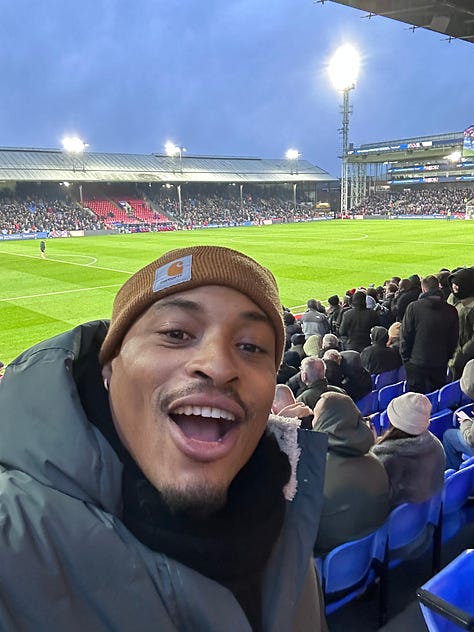

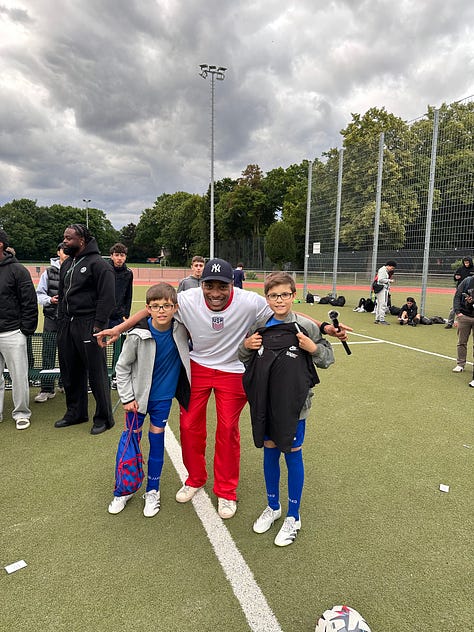
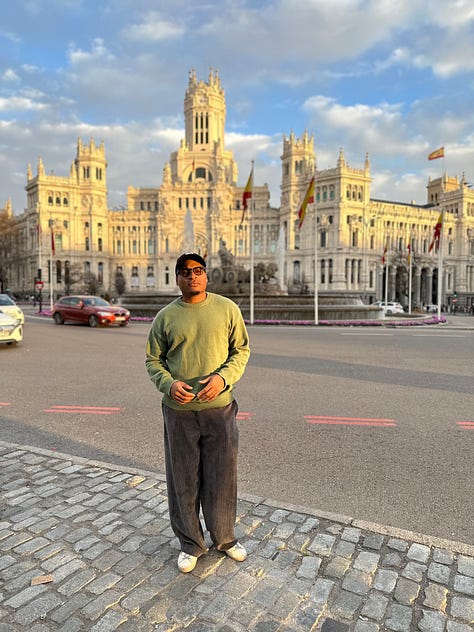
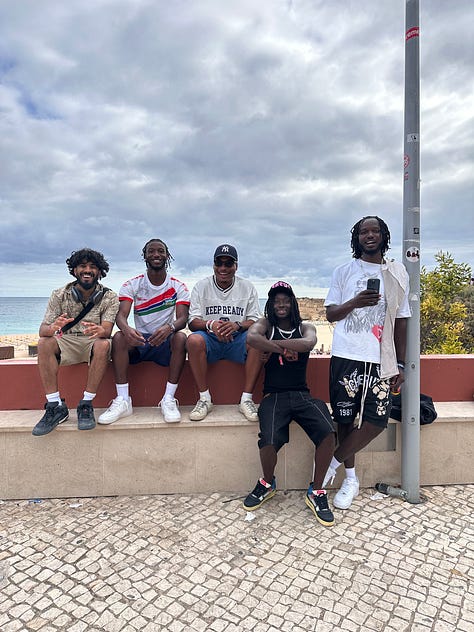


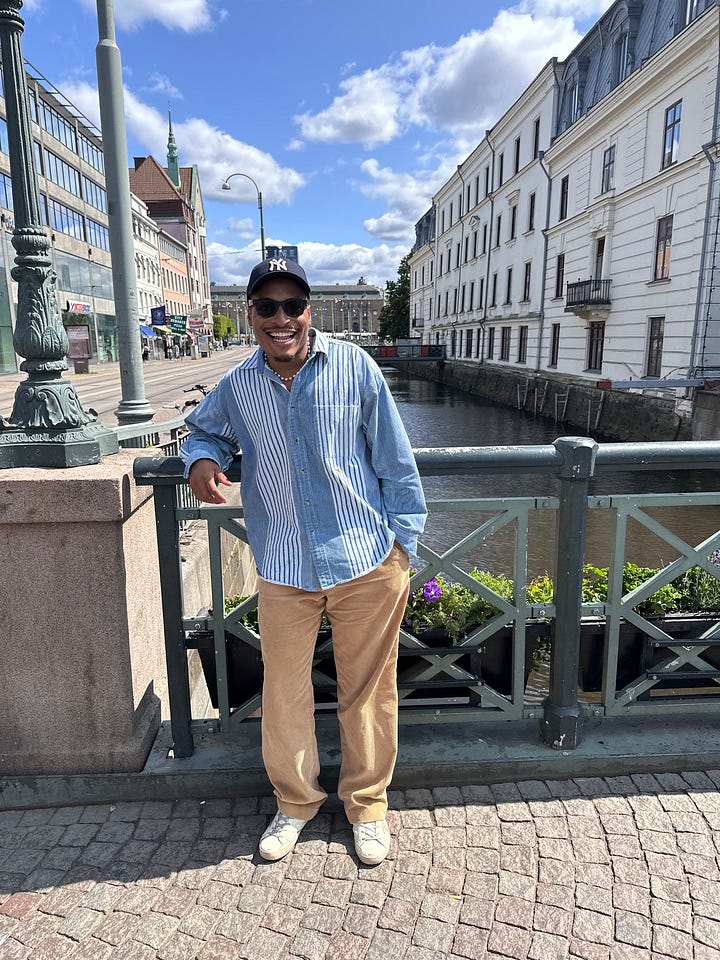
Among all those journeys, Germany stands out as the place that transformed him most. Living there for six months, he didn’t just pass through; he became part of the fabric. He learned the language, made close friends, and immersed himself in everyday customs, from the slower rhythms of mealtimes to the small courtesies that define German hospitality. That experience tested his adaptability and showed him he could build a life from scratch, even in places that once felt out of reach.
Over time, Luidji has grown into a creator who documents and shares what it means to fully engage with another culture. Whether he’s celebrating Sweden’s Midsummer festival, exploring neighborhood markets, or learning a few essential phrases in a new language, he treats every destination as an invitation to dissolve assumptions. For him, these moments aren’t about collecting content; they’re about collecting perspective.
When he lands somewhere new, he has a simple ritual. He drops his bags and walks, sometimes without any destination beyond curiosity itself. He stops for coffee, chats with baristas, and asks locals what they love most about where they live. Rather than relying on algorithms or tourist guides, he lets those conversations shape his plans. Again and again, it’s in the unplanned exchanges that he’s found the most meaningful discoveries.
As a Black man, Luidji is mindful of how travel is often framed as something reserved for others. He’s heard people dismiss solo exploration as “white people stuff,” but he sees that mindset as another barrier to break. His experiences have taught him that discomfort is part of the process and that stepping into the unfamiliar is its kind of liberation.
He also believes that the energy you bring shapes the experience you have. When he spoke German to locals, he often encountered surprise, but also respect. In those moments, she felt himself dismantling assumptions, one interaction at a time.
Travel has taught him not to judge people by the stories they carry with them. Growing up Haitian, then American, and later living across Europe, he witnessed firsthand how culture informs values, pace, and perspective. The more he explored, the more he understood what he valued most: connection, curiosity, and the freedom to decide for himself what a good life looks like.
In a world that tells Black men who they should be, Ludiji has chosen to discover who he is by moving through places that ask nothing of him but openness.
While Luidji’s journeys have been rooted in cultural immersion and self-discovery, Noah Hutchins has approached travel with the same curiosity he once brought to the soccer field, seeking connection, movement, and a deeper understanding of what community can look like anywhere in the world.
Movement, Curiosity, and Building New Playbooks: Noah Hutchins
For Noah Hutchins, travel has always felt like the next frontier of a life shaped by motion. Growing up, most of his energy and time were devoted to soccer. He didn’t have the chance to travel far, but he spent countless hours with National Geographic and the Discovery Channel, absorbing stories about places he promised himself he’d one day see in person.
Since high school, he’s made good on that promise, visiting 18 countries and turning curiosity into practice. His favorite experience so far was spending a month in Brazil, a place he’d dreamed of since childhood. He laughs remembering how, at eight years old, he convinced himself he must be Brazilian because he loved soccer and thought he looked the part. That innocent belief became a spark he carried into adulthood.
Today, Noah moves through new places with intention and ease. When he arrives in a country, he prefers to book his stay in the area with the most energy, a place alive with social life, music, and people willing to talk. The first stop helps him find his bearings and decide how he wants to spend the rest of his trip. He rarely sticks to a schedule, preferring to move “like water,” adjusting plans to match his mood and what the day reveals.
His advice for other Black travelers is as practical as it is honest. He encourages others to ask for recommendations from other Black travelers, which is both valuable and truthful. He encourages others to ask for recommendations from other Black travelers, to learn the basics of the language before arriving, and to start mornings with runs through local neighborhoods, both for safety and to establish a sense of familiarity in a new environment. While he prefers more privacy than a hostel provides, he recognizes them as an easy way to meet people if you’re craving connection. And while he’s never been a fan of dating apps in New York, he’s found that abroad, they can be a surprisingly good way to meet locals without expectations.
As the founder of Not A Run Club, a Brooklyn-based movement community that has expanded to cities like London, Noah is thinking deeply about how the hunger for belonging transcends borders. He sees Americans as often being more isolated and more eager for community than some of their counterparts abroad. However, he’s curious to see how the NARC model, which combines fitness, social connection, and purpose, will resonate in cultures where communal ties are woven differently.

Travel, for Noah, is both a mirror and a rehearsal. It reveals what he values most: flexibility, openness, and the courage to trust new environments, and it teaches him to build the kind of spaces he once needed. As NARC continues to grow internationally, he’s excited to see what the following chapters reveal, not just about the world, but about himself.


Together, Sheldon, Luidji, and Noah remind us that solo travel isn’t just about seeing new places; it’s about reclaiming authorship over your story. For brands, there’s an opportunity in this: to champion narratives that don’t flatten Black men into one-dimensional archetypes but instead honor their complexity, faith-rooted explorers, cultural curators, and community architects. These journeys demonstrate that mobility can be a powerful strategy for healing, that curiosity can transcend borders, and that belonging doesn’t have to wait for permission. The brands that will matter tomorrow are the ones willing to tell these stories in partnership with the people living them, illuminating the nuance, the contradictions, and the quiet power of choosing to see the world and yourself without limits.
The Strategist Table Perspective
At The Strategist Table, we believe strategy isn’t just about selling, it’s about seeing. These stories remind us that culture doesn’t live in hashtags or trend reports. It lives in the decisions people make when no one is watching: the choice to book the ticket, to learn the language, and to build a community from scratch. For brands, the opportunity isn’t simply to amplify these journeys, but to co-create with the people living them, to invest in the rituals, spaces, and platforms where identity is explored and expanded. Because when you ground your strategy in real lives, not just market segments, you don’t just build campaigns. You build trust. And trust is what endures when the headlines fade.






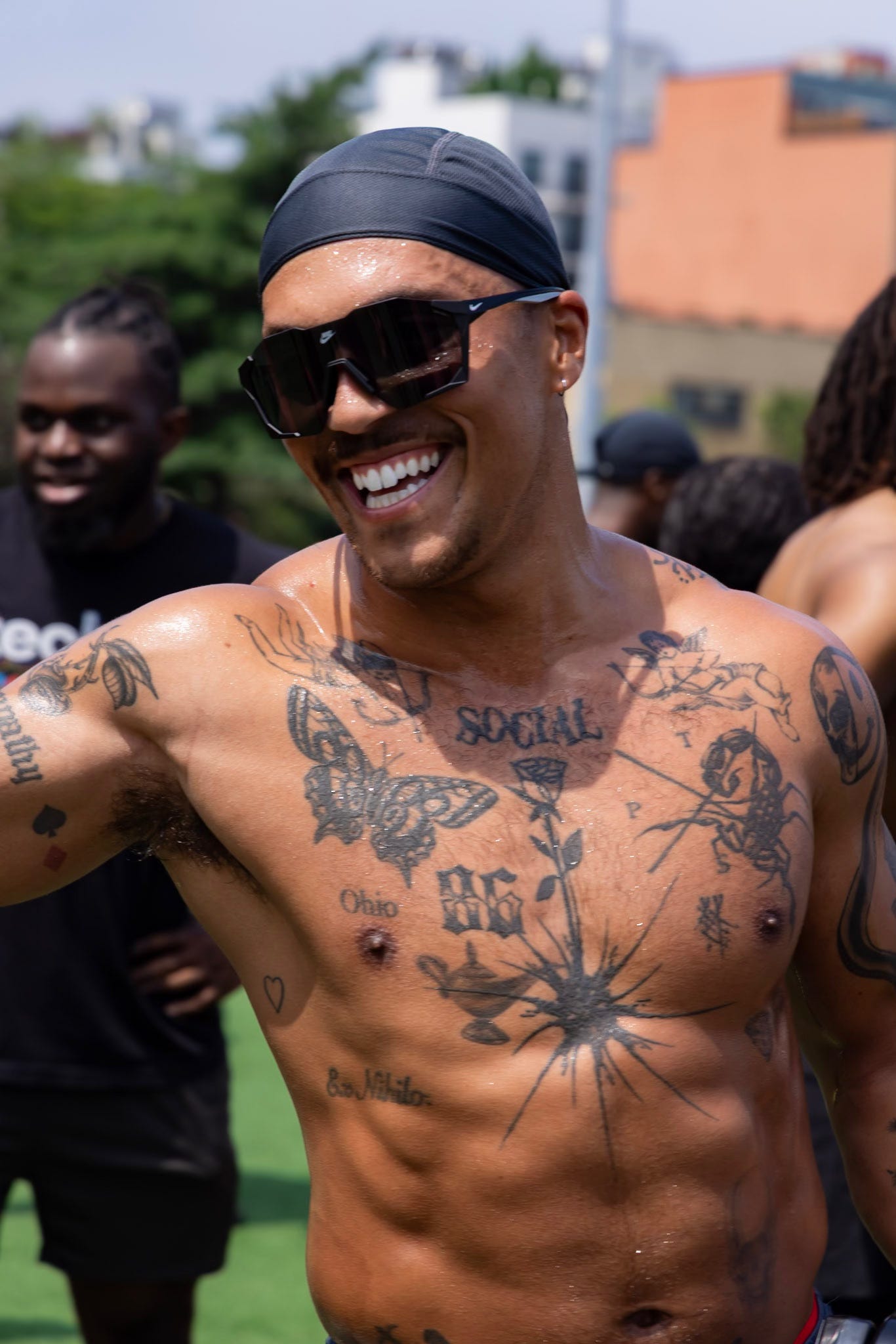

Thank you for this Article Randy! Everything was well said.
strat table steady dropping. Solo travel for the win